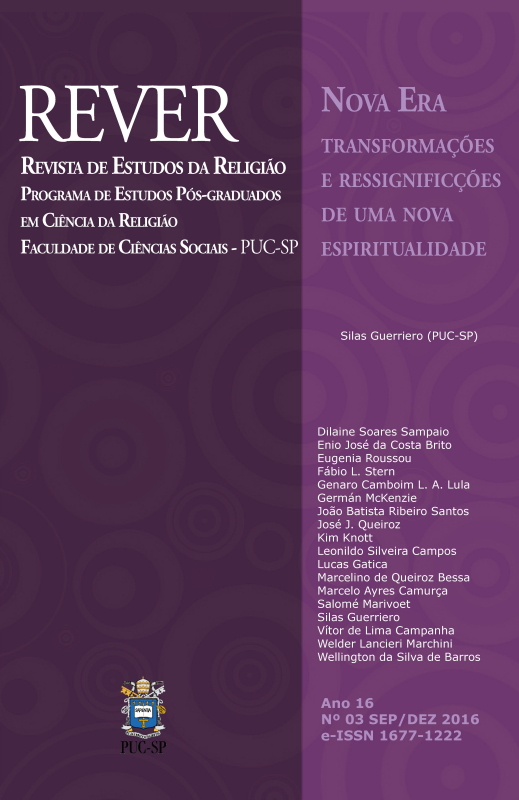Exploring Soto Zen in Peru
Palavras-chave:
Zen Buddhism, Peru, transplantation, trans-national religionResumo
Soto Zen has grown in importance in Peru since 2005, a phenomenon that has not yet been well studied. To analyze such a process, this research uses the “processive modes” theory as developed by M. Baumann and the Rational Choice Theory as applied to religion by R. Stark and R. Finke. It draws upon qualitative data collected through semi-structured interviews and written questionnaires conducted in two stages, the first one between 2007 and 2009, and the second one in 2013, as well as through participant observation. This study concludes that after deploying important organizational, institutional, communicational and financial resources, today’s Soto Zen presence in Peru can be characterized by the drive to adapt its tradition to Peruvians on the one hand, and maintaining a connection to its roots on the other. As a consequence of these two realities, the Soto Zen community is facing tensions between ordained leadership and lay members. These may jeopardize the strategic position the community has within the Peruvian religious marketplace.
Métricas
Downloads
Publicado
Como Citar
Edição
Seção
Licença
Autores que publicam nesta revista concordam com os seguintes termos:
- Autores mantém os direitos autorais e concedem à revista o direito de primeira publicação, com o trabalho simultaneamente licenciado sob a Licença Attribution-NonCommercial 4.0 International, que permite o compartilhamento do trabalho com reconhecimento da autoria e publicação inicial nesta revista.
- Autores têm autorização para assumir contratos adicionais separadamente, para distribuição não exclusiva da versão do trabalho publicada nesta revista (ex.: publicar em repositório institucional ou como capítulo de livro), com reconhecimento de autoria e publicação inicial nesta revista.


